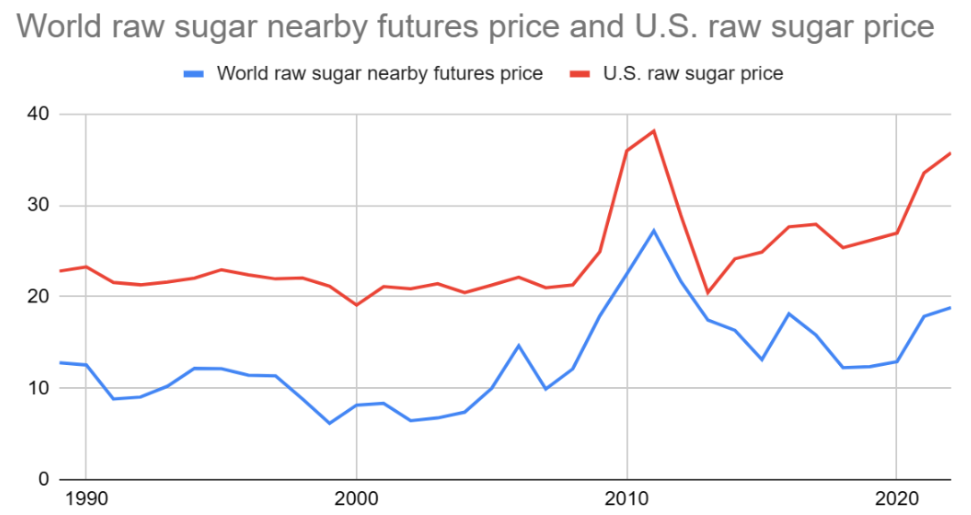Later this year, the 2018 Farm Bill will expire. Farm bills are enacted every five years by Congress and set out the overall policies for agriculture for the years to come. As lawmakers work on the new farm bill, they should either leave out or at least reform the Sugar Import Program (SIP) that costs Americans billions every year in higher sugar prices.
The SIP controls supply through marketing limits on domestic production and imports. Tariff-rate quotas determine a certain quantity to enter the country at an in-quota tariff rate of 0.663 cents per pound for raw sugar. Importing more than what is allocated on your import certificate is possible, but at a higher rate: the out-of-quota tariff is 15.36 cents per pound for raw sugar. This extraordinarily high rate effectively prohibits out-of-quota imports, artificially restricting the market for sugar.
The sugar program benefits a few producers while raising prices for all other goods that use sugar as an input. The widespread use of sugar in processed consumable products means the SIP’s impact on consumers is considerable: The price of sugar in the United States is more than two times higher than in the rest of the world.
To avoid suffering these high prices for another five years, it is necessary to reform this program. A 2020 GAO report was titled: “Supporting Sugar Prices Has Increased Users’ Costs While Benefiting Producers.” The cost is even higher today than when it was written.
Figure 1: Annual sugar prices from 1989 to 2022 in the United States and worldwide

As it stands, the Sugar Import Program benefits a minority of producers at the expense of consumers and taxpayers. In the context of inflation, it is especially urgent to reform this program. The bipartisan Fair Sugar Policy Act, introduced last Congress by Sen. Jeanne Shaheen (D-NH), is a good starting point to modernize these policies. While it has not yet been introduced in this session, earlier versions of her reform bill would have specifically lifted restrictions on the domestic supply of refined sugar and reduced market distortions caused by sugar import quotas.
The Sugar Import Program may be sweet for the domestic sugar industry, but it's leaving a sour taste in the mouth of consumers and businesses who have to pay more for their sugar fix. Congress should use the opportunity of drafting a new Farm Bill to reevaluate whether the sugar industry truly deserves a sweetheart deal that harms everyone else.

